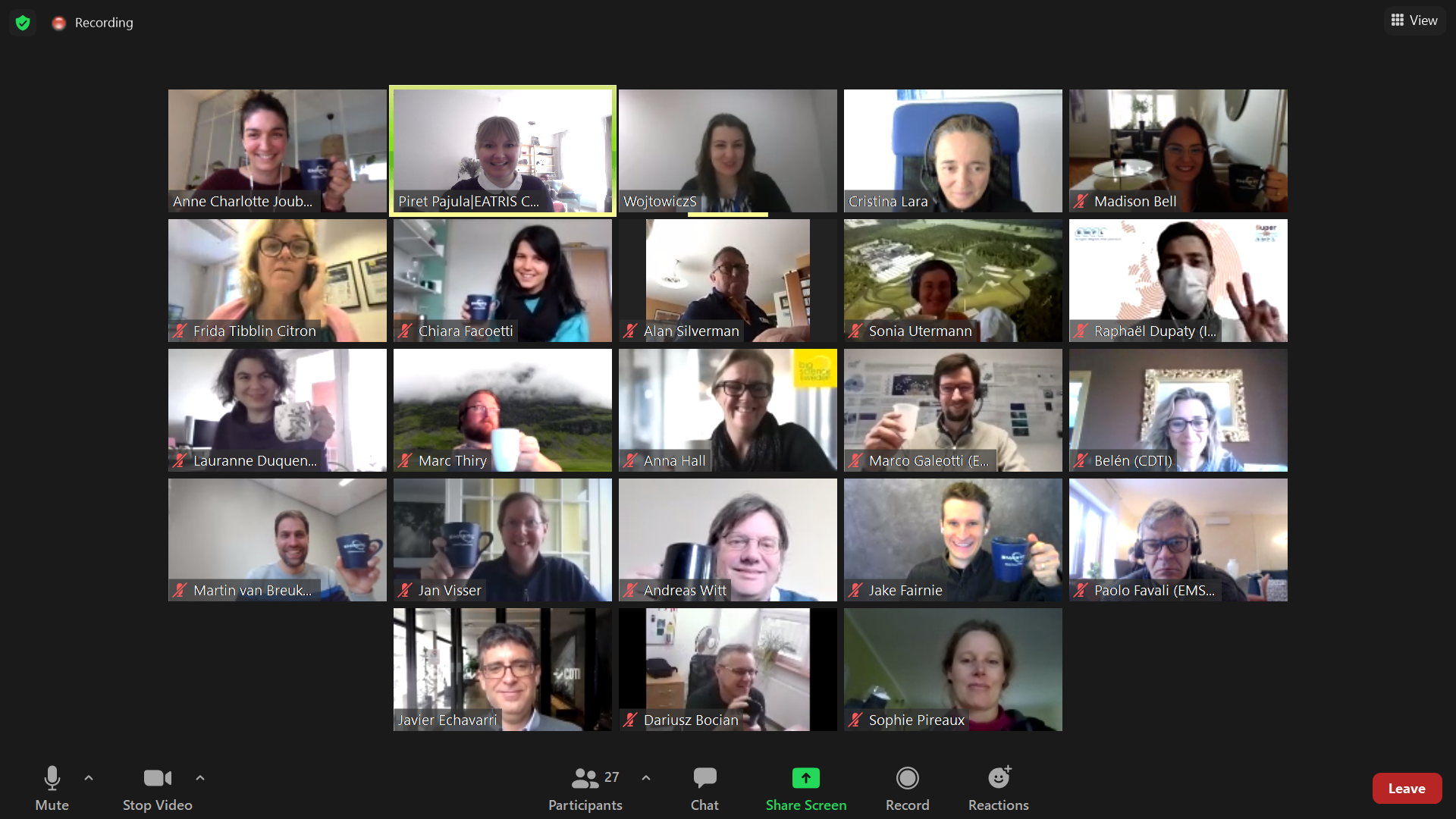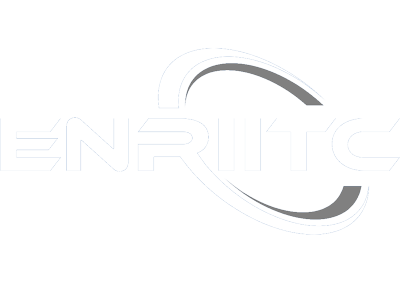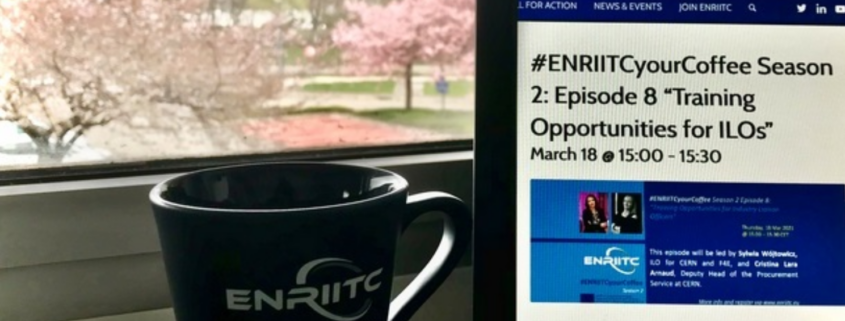#ENRIITCyourCoffee Season 2: Episode 8 – “Training opportunities for ILOs”
The eighth instalment of #ENRIITCyourCoffee Season 2 was brought to us by Sylwia Wójtowicz, ILO for the European Organisation for Nuclear Research (CERN) and Fusion for Energy (F4E) and we had a great opportunity to ask directly from Cristina Lara Arnaud, Deputy Head of the Procurement Service at CERN, about their ILO training.
Cristina started off with the shortest presentation in #ENRIITCyourCoffee history. In summary, CERN has a new ILO training every year, which starts with an introduction of available tools such as e-procurement web page and an a tour of resources in the facility regarding available statistics and technical support to name a few. Next covered topics are CERN procurement rules, procedures and legal vocabulary and framework, which is essential knowledge for a an ILO. The current setup at CERN is that the training is held via Zoom and the latest one was in March and open to everyone who showed interest in CERN. Training covers ‘ILO info’, which entails current and past tendering processes and an overview of the annual procurement report and its resources. Cristina also mentioned that they used the training to also give an introduction to the documents for the quarterly Finance Committee meeting, that will be coming up shortly.
“We can say who we are and that we are here to help you. If you understand what we do and how we do our job, it’s going to be much easier. If we speak the same language then we can communicate better.”
Anne-Charlotte Joubert from ESS kicked off the discussion with excellent question regarding materials between the training. Cristina was happy to share that the CERN web page is multifaceted with sections for ILOs, external companies and CERN personnel overall.
Sylwia continued with a question on the training setup outside of the pandemic: “The last training was delivered online because of the situation, but usually there are trainings on site. What do you think is the more effective way of training?” Cristina expressed the need to come onsite to CERN to experience the scale of the facilities and also to meet not only the procurement officers, but also the technical officers.
The discussion moved more on the topic of ILO skills and most important competencies. For example if there was a difference in the training needs of ILOs with a scientific vs business background, but Cristina pointed out how the job of an ILO is not too dependent on the person’s background while retaining that diversity itself is always good.
Belén from CDTI took the floor next to share her experience in the institution that hosts all Spanish ILOs. At CDTI, they benefit from using common tools such as companies’ databases and Spanish industry capacities catalogues. Belén emphasised that besides the training provided by the facility, national and international network of ILOs and colleagues experiences are an important part of knowledge and establishing good practices.
The next audience member drew attention to other skills that are not only CERN-specific such as soft skills, competencies, best practices, which are acquired by working together and sharing. The question for Cristina was, what are the most important skills for an ILO in her opinion. Cristina replied with the core being communication. More specifically being a good middle between the ILO’s home organisation and understanding the company’s needs. Further on Cristina believes that a good ILO adds their own value, meaning that an ILO for example identifies an interesting company to work with CERN but the company is missing a requirement. The ILO should be able to help to fill this requirement and thus help this great business opportunity come to life.
“[ILOs] can certainly give advice and see why some companies have not provided a good service in some organisation while they have provided an excellent service in another organisation. Why some of them work, why some of them do not work?”
Sylwia asked about on-site ILOs and if that is of importance. Cristina was happy to reply in the example of Spain where they have a dedicated ILO and there is a significant positive difference in Spain in comparison to perhaps other ILOs that are dedicated to more than one organisation and, thus have to navigate between many sets of rules and regulations.
The topic reverted back to skills and Jorge Lopez asked if and ILO should have more technical skills in the case of CERN as it is more co-development with industry. In that way an ILO needs more to identify when and how CERN needs to be involved. Cristina pointed out that while technical officers would feel more comfortable talking to other technical officers, it comes down to communication and networking skills since the technologies vary a lot and no one person can be an expert on all.
When asked what training a newly appointed ILO would need Cristina answered in short: “ILOs need continuous training. I’ve been in CERN for 26 years and I learn something new every day.”
Moving from ILO training to ILO impact measuring, Alan Silverman asked how would Cristina do that since measuring the sales would not be a good way to assess ILOs since the companies often dictate that. Cristina approached ILO impact from an angle of overall companies they provide for procurement. “Not how much how many contracts you get, but at least how many offers you get.” She followed up with the importance of ILOs not per se to secure a contract, but also that ILOs bring in companies to get to know CERN. It’s important since there could be future collaboration and overall better knowledge on CERN and a better relationship between CERN, industry and a country.
Anna Hall ended with a truly ENRIITCing thought: Why not have a ILO training together with different facilities, so that the differences in procurement can be compared and understood better. Paolo Acunzo followed Anna up with the Big Science Business Forum and its dedicated plenary session on procurement.
Thank you for joining us on another ENRIITCing Thursday coffee and we are looking forward to seeing you on 25 March discussion from ICO side. The invited speakers are Iulianna Van der Lek, Training and Education Officer at CLARIN, who will talk about the challenges for an SSH RI to build a strong relationship with industry and the skills that an ICOs should develop, and Shridhar Jawak, Remote Sensing Officer at SIOS, who will talk about how SIOS is taking steps to involve collaboration with industries and ways to involve industries in SIOS activities.
The discussion will be led by Marco Galeotti, Communication Officer at EMSO. It will take place on Thursday, 25 March 2021 from 15:00 – 15:30 CET. Registration is open here.
Please do not hesitate to contact us at enriitc@ess.eu if you have any questions or if you wish to host a session yourself.







Leave a Reply
Want to join the discussion?Feel free to contribute!